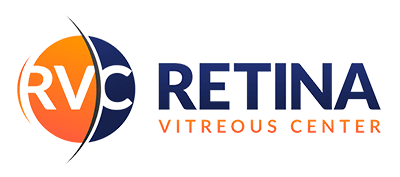Retinal Vein Occlusion
What is Retinal Vein Occlusion?
Occasionally referred to as an “eye stroke”, a retinal vein occlusion causes a blockage of blood flow from the retina back to the heart. The retina is the thin membrane that lines the back of your eye. Think of the retina’s main function similar to film for a camera. When the retinal vein becomes blocked, it cannot drain blood from the retina which leads to bleeding, bruising and leakage of fluid from the blocked blood vessels. This blockage causes interference between the light receptor cells of the eye, resulting in blurred or loss of vision.What are the types of retinal vein occlusion?
Central retinal vein occlusion (CRVOS) occurs when the main retinal vein becomes blocked. In this case, the entire retina becomes damaged. Branch retinal vein occlusion (BRVOS) occurs when only a segment of the main retinal vein is blocked. In this case, only a portion of the retina is damaged. This type is three times more common than CRVOS.What causes retinal vein occlusion?
A blockage forms in the vein— normally from a blood clot— and obstructs blood flow. It is possible for this to happen because the veins in the eye are too narrow. Factors and conditions that affect blood flow and contribute to this eye disease include:
High blood pressure
High cholosteral
Glaucoma
Atherosclerosis
Madular edema
Diabetes
Advancing age
Inflammatory diseases
People who smoke
What are the symptoms?
Retinal vein occlusions can cause blurring of the central and peripheral vision. CRVOS causes more severe vision loss when compared to BRVOS. The blurring and loss of vision can vary from mild to severe and can worsen if not properly treated. Retinal vein occlusion can also lead to other health problems. Pain is not a symptom of this eye disease.What is the treatment?
Blockages in the retinal veins cannot be removed. There is no cure for retinal vein occlusion, so treatment of retinal vein occlusion dominantly focuses on the issues that have arose from the occlusion. Most common treatments are laser treatments and injections.If macular edema is present, focal laser treatment is an option. The laser treatment will reduce swelling of the macula. Anti-vascular endothelial growth factor can be injected into the eye, which may block the growth of new blood vessels which can lead to glaucoma.
For information and consultation regarding treatment for Retinal Vein Occlusion, contact our main office at (405) 607-6699.
